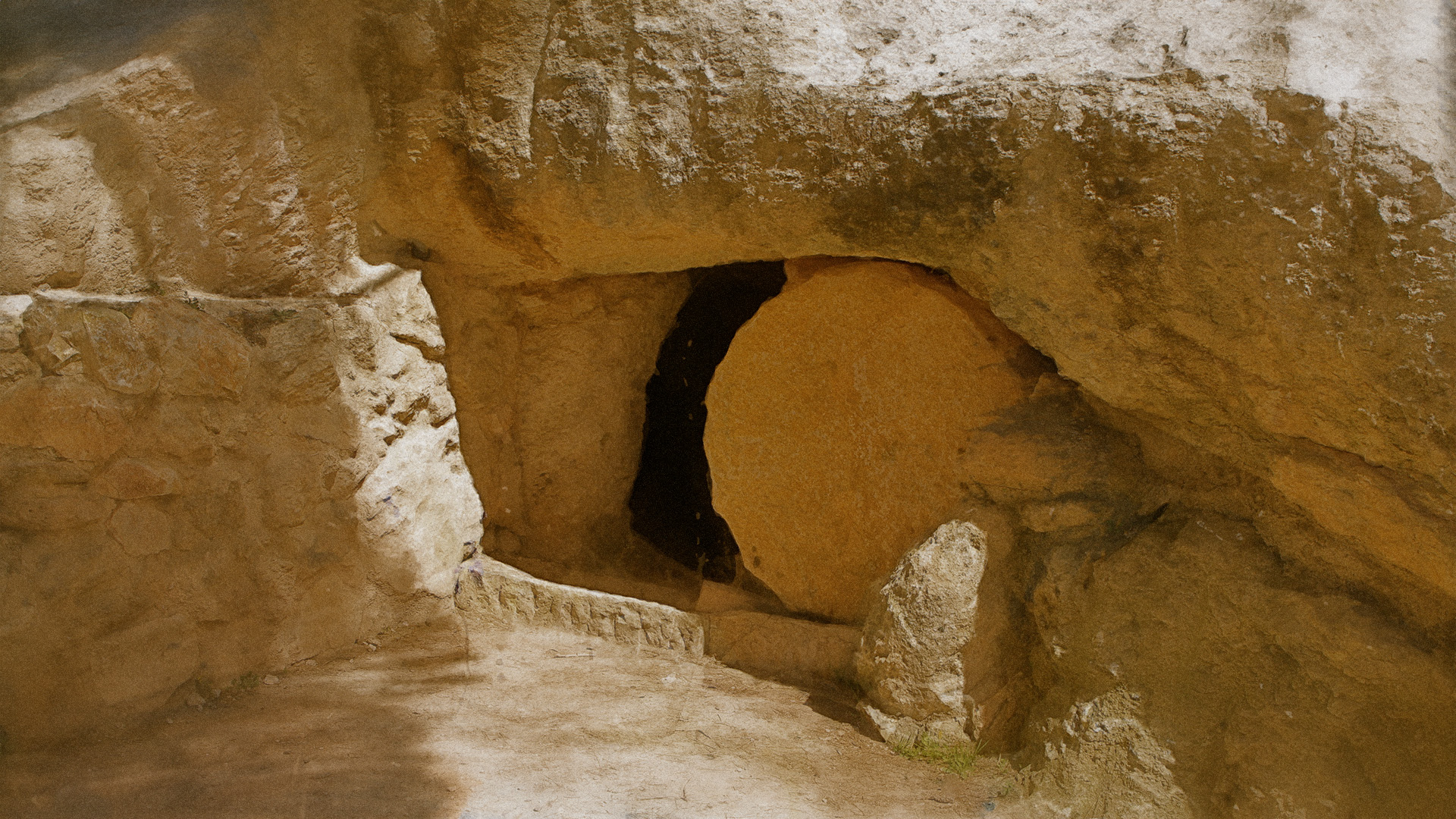At the close of Friday, there was hurried activity. The Sabbath was approaching.
All four Gospel writers tell good news before the good news. They tell of an unexpected triumph before the unexpected triumph. There are many important details in the life, death, burial, and resurrection of Jesus that only one or two of the Gospel writers tell. So we should take notice when all four heralds draw our attention to the same story.
New Person
After Jesus died, we’re introduced to Joseph of Arimathea (Matt. 27:57–61; Mark 15:42–47; Luke 23:50–56; John 19:38–41). There’s no mention of him, not even a hint, before Jesus died. Who is this new person? Why introduce him now?
All four Gospel writers tell good news before the good news.
After Jesus’s death, we learn Joseph was a “rich man from Arimathea” (Matt. 27:57), a “respected member of the council” (Mark 15:43), a “good and righteous man, who had not consented to their decision and action” (Luke 23:50–51), and a “disciple of Jesus, but secretly for fear of the Jews” (John 19:38).
Who could’ve anticipated this news?
In the final days of Jesus’s earthly ministry, as one of his disciples, Judas, began to conspire with the council, a member of the council was quietly devoted to Jesus. At the time when Judas accepted a bribe to betray Jesus to the religious leaders, one of their own began to plan a generous offering that would honor Jesus.
Satan entered Judas, and he got outflanked. Jesus had captured the heart of Joseph.
New Place
Next, the Gospel writers tell of a new place. Joseph had “his own new tomb, which he had cut in the rock” (Matt. 27:60), where he “rolled a stone against the entrance of the tomb” (Mark 15:46), “where no one had ever yet been laid” (Luke 23:53), and he buried Jesus with help of Nicodemus who “earlier had come to Jesus by night” (John 19:39).
Joseph needed Pilate’s permission to take care of Jesus’s body, and though at first Pilate was surprised to hear Jesus had already died, he granted permission for Joseph to take Jesus down from the cross. Death by crucifixion usually took time, even days. But Jesus died quickly because of how severely he’d been tortured before.
It was common for those crucified to be left on the cross after death to further dehumanize them and terrorize passersby. But not in this case.
Here again, who could’ve anticipated this news? Condemned criminals weren’t given proper burials by the Roman authorities. If Pilate couldn’t be bothered to spare Jesus’s life, why would he be bothered to spare his corpse?
Many of Jesus’s disciples who would’ve desired to provide a proper burial simply didn’t have the means to do so. A new and private tomb is lavish. Moreover, John tells us Nicodemus helped carry “a mixture of myrrh and aloes, about seventy-five pounds in weight” to prepare Jesus’s body for burial.
If Judas was offended at Mary’s extravagant anointing of Jesus with “about a pint of pure nard . . . worth a year’s wages” (John 12:1–8, NIV), how much more extravagant was this 75 pounds? What were the 30 pieces of silver Judas received for betrayal compared to this amazing offering of love?
Judas walked with Jesus in the day and betrayed him in the dark of night. Nicodemus first came to Jesus under cover of night and then helped Joseph care for Jesus’s body while it was still day. Yes, Sunday was coming. And what a day it was. But even at the close of Friday, there was good news of unexpected triumph. The King of the Jews who received extravagant gifts to celebrate his birth also received extravagant care to mark his burial.
New Promise
Pilate’s permission, Joseph’s tomb, and Nicodemus’s help all verify the resurrection’s truth. These signs at the close of Friday testify that amid the evil and wickedness of the crucifixion, God’s mysterious providence was at work to bring about the promised new covenant.
Jesus was buried, not left to the beasts and birds. Jesus was buried alone, not to be mistaken for any other person. So when Jesus’s tomb was empty, not even the “large sum of money” from the chief priests to the guards (Matt. 28:12, NIV) could tell a more compelling story than the truth of the resurrection. The bribes to Judas and the guards couldn’t match the testimony of Joseph’s offering.
The King of the Jews who received extravagant gifts to celebrate his birth also received extravagant care to mark his burial.
Satan was outflanked. The rulers were outspent.
The deceiver was deceived. The conspirators were conspired against. Death, which swallows us all, was swallowed up in victory.
Luke later tells us that Jesus “presented himself alive to them after his suffering by many proofs, appearing to them during forty days and speaking about the kingdom” (Acts 1:3). Though we don’t know when it would’ve come up, certainly their discussions must have included Isaiah’s prophesy of the Suffering Servant, the Messiah, though silent and led “like a lamb that is led to the slaughter,” was also identified with “a rich man in his death” (Isa. 53:7, 9). When Jesus told them, they must have marveled. And each made sure we wouldn’t forget it.



